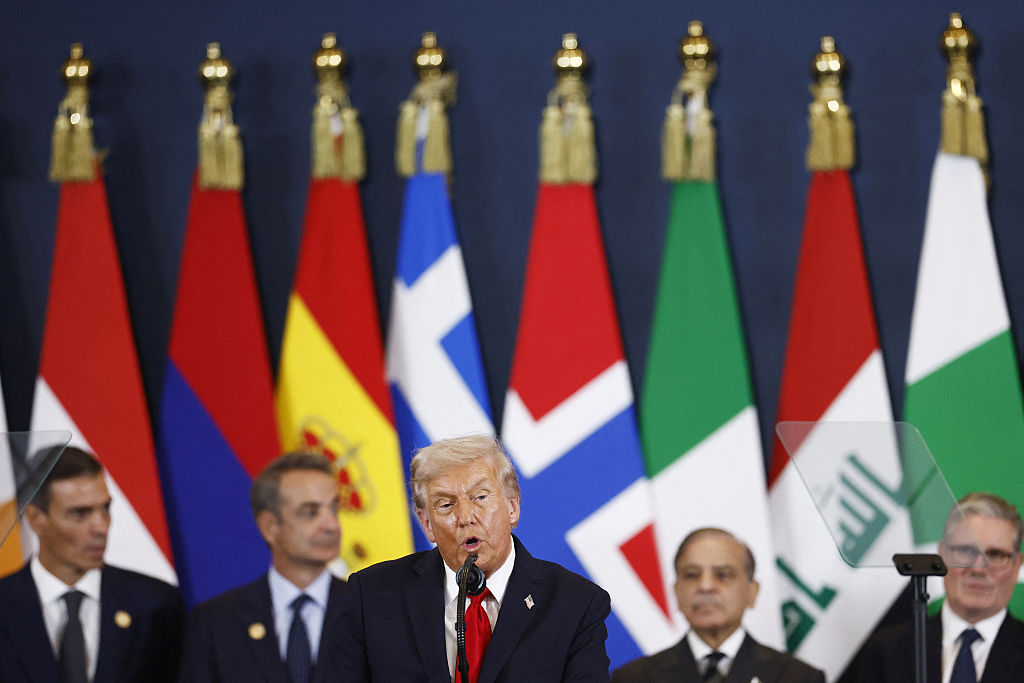Why Jared Kushner may face conflict woes from tax overhaul
As the scion of a major New York real estate family and a top adviser to his father-in-law, President Donald Trump, Jared Kushner has a treacherous road ahead, rife with pitfalls that could embroil him in conflict of interest allegations.
Most of these potential conflicts could involve the Trump administration's plans for tax reform, which, along with repealing Obamacare, is a pillar of its legislative agenda. Taxes are vital to real estate developers and landlords like the Kushner Companies, and any changes in policy could have a major impact on the organization's bottom line.
Kushner stepped down as CEO of the firm when he and his wife, Ivanka Trump, the president's daughter, moved to Washington to take key jobs in the White House. While Kushner has divested his interest in some of the business' holdings -- it's unclear which ones and how many -- a number of them remain under his control. Some of his assets were sold to a trust that his mother runs. He has pledged to recuse himself from issues that intersect his family's interests.
"If Kushner is involved in taxes, it's a red flag," said Richard Painter, who was the ethics lawyer in the George W. Bush White House. "He got real estate from his family, then sold it back to them. That looks terrible."
Like the president, Kushner has publicly positioned himself as removed from his family business. Mr. Trump has placed his interest in the Trump Organization into a trust that his oldest son, Donald Jr. and the company's chief financial officer oversee. This arrangement, similar to Kushner's trust that his mother runs, has drawn criticism that Mr. Trump has not placed his assets totally beyond his control.
Here are some problems that may await Kushner.
Visas for investment program. This issue was what drew negative attention to Kushner in recent days -- and it may sprout up again. It all started last weekend when Kushner's sister, Nicole Meyer, solicited Chinese investors in Shanghai to raise money for a $400 million luxury apartment complex in Jersey City, New Jersey, called One Journal Square, which the Kushners want to start building next year. According to Reuters, Meyer sought to raise $150 million through a 27-year-old U.S. government program that lets wealthy foreigners obtain two-year visas to the U.S. and perhaps gain permanent residency. To get one of these EB-5 visas, a person must invest at least $500,000 in a U.S. business venture that creates 10 jobs.
Meyer reportedly used a slide of Mr. Trump in her talk and mentioned that her brother was a high administration official. After news of her presentation emerged, the family firm issued a statement apologizing for the appearance of impropriety.
There is no indication, however, that Kushner Companies will stop highlighting the EB-5 program, which some have described as "cash-for-visas," in wooing investors for its projects.
The company has used the strategy in the past. Last year, it debuted a Trump-branded apartment building in Jersey City, using Chinese money gleaned from EB-5-related investments. To be able to offer these investments, the firm had to receive a special designation from the U.S. government as a "regional center," said Nuri Katz, an expert on the program.
An attempt to ask the company its plans on the subject went unanswered.
A problem that could loom for the Kushners is that many Chinese investors may end up having trouble immigrating. Katz, whose Antigua-based Apex Capital Partners investment firm deals in international real estate, depicted the EB-5 program as often a raw deal for investors, who must contribute their $500,000 up front and wait years to gain U.S. immigration clearance. The main reason for the delays: The huge popularity of the visas among foreigners, especially the Chinese, has overwhelmed federal immigration authorities. But sometimes, Katz said, real estate and other U.S. business projects fall through -- and that leaves foreign investors with $500,000 lost and no visa.
Special lower tax rate for real estate operators. Mr. Trump's tax plan seeks to slash the top corporate rate to 15 percent from the current 35 percent, and also make so-called "pass-through" entities like real estate businesses eligible. Now, the Trump and Kushner firms must pay individual tax rates, which go as high as 39.6 percent. Obviously, this would be an enormous tax break to participants in pass-through businesses.
To be sure, pass-throughs aren't limited to the real estate realm: Enterprises ranging from law offices to medical practices to hedge funds would stand to benefit from such a feature. But, noted Ed Glazer, a partner at the Goodwin law firm in Boston, there may be a movement to restrict the lower rates to keep out some categories, perhaps hedge funds.
Regardless, if real estate ends up with favorable treatment, Kushner and his father-in-law could face criticism. The Kushners and the Trumps "have a seat at the table, and everybody else has to pay for lobbyists," said Michael Greenwald, a partner in New York's Friedman consulting and accounting firm.
Other tax breaks. It's not in the Trump tax plan, but the House GOP blueprint calls for the immediate write-off of capital spending, known as depreciation, which would be a boon to real estate developers like the Kushners. Under current tax law, they must spread depreciation over many years, which means less of a boost for their near-term financial performance.
Offsetting that is the House Republican proposal to eliminate deductions of interest expenses on debt, and real estate players use plenty of debt. The question, Glazer said, is whether the accelerated depreciation would offset the loss of the interest deduction.
One other feature of Mr. Trump's tax plan could benefit the president and perhaps the Kushners: eliminating the alternative minimum tax, called the AMT. Meanwhile, the president's plan does nothing to end the practice of booking long-term losses for many years to whittle down the tax bill, a benefit largely restricted to real estate operators. Mr. Trump appears to have taken advantage of the long-term loss break in his 2005 taxes, as seen in the partial return that was leaked in March.
He would have paid next to nothing if not for the AMT, a parallel method of tax computation that ignores most deductions and is designed to ensure that the wealthy don't end up paying zero. As a result, Mr. Trump paid $36.6 million in federal income taxes on $152.7 million in reported income.
But if debt capital gets more expensive for developers due to a tax code change, their response might be to opt for more equity investing in their projects, Greenwald said. And such investment is exactly what the EB-5 visa program often provides.



